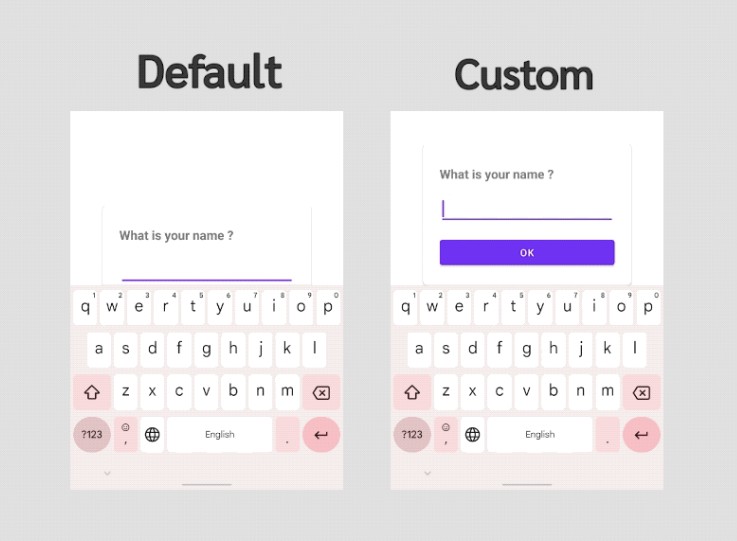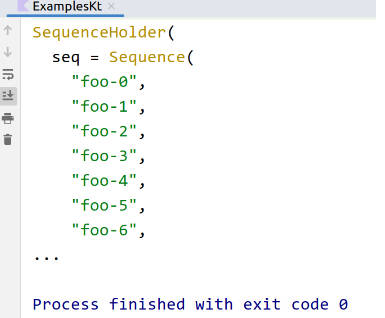Fleks
A fast, lightweight, entity component system library written in Kotlin.
Motivation
When developing my hobby games using LibGDX, I always
used Ashley
as an Entity Component System since it comes out of
the box with LibGDX and performance wise it was always good enough for me.
When using Kotlin and LibKTX you even get nice extension
functions for it but I never was fully happy with how it felt because:
- Defining ComponentMapper
for every Component felt very redundant - Ashley is not null-safe and therefore you get e.g.
Entity?passed in as default to
an IteratingSystem
although it will never be null (or at least shouldn’t ?) - Creating Families as constructor arguments
felt weird to me - The creator seems to not work on this project anymore or at least reacts super slowly to change requests, bugs or
improvement ideas - Although for me it was never a problem, I heard from other people that the performance is sometimes bad especially
with a lot of entities that get their components
updated each frame
Those are the reasons why I wanted to build my own ECS-library and of course out of interest to dig deep into the
details of this topic and to learn something new!
Who should use this library?
If you need a lightweight and fast ECS in your Kotlin application then feel free to use Fleks.
If you are looking for a fully fledged ECS that supports almost anything that you can imagine and you
don’t care about Kotlin then use Artemis-odb or Ashley.
Current Status
There is no official release yet and the library is still under construction. Please feel free to contribute to the
Discussions or Issues. Help is always appreciated.
Current API and usage (not final)
World
The core of Fleks is the World which is the container for entities, components and systems and is the object that
you need to update your systems.
To create a world simply call:
val world = World {}
A world without any system doesn’t make sense and that’s why there is a lambda argument for the world’s constructor
to configure it accordingly:
- Use
entityCapacityto set the expected maximum amount of entities. The default value is 512. The reason for this
setting is to initialize internal collections and arrays with a proper size for your game to avoid a lot
ofArray.copycalls in the background which are slow. - Use
systemto add a system to your world. The order ofsystemcalls defines the order in which they are called
when callingworld.update
Here is an example that creates a world for 1000 entities with a Move- and PhysicSystem:
val world = World {
entityCapacity = 1000
system<MoveSystem>()
system<PhysicSystem>()
}
System
Usually, your systems depend on certain other things like
a SpriteBatch
or Viewport. Fleks
uses dependency injection for that to make it easier to adjust
arguments of your systems later on without touching the code of the caller side.
First, let’s have a look on how to create a simple IteratingSystem that gets called every time world.update is
called. It is a made up example of a Day-Night-Cycle system which switches between day and night every second and
dispatches a game event via an EventManager.
class DayNightSystem(
private val eventMgr: EventManager
) : EntitySystem() {
private var currentTime = 0f
private var isDay = false
override fun onTick(deltaTime: Float) {
currentTime += deltaTime
if (currentTime >= 1000 && !isDay) {
isDay = true
eventMgr.publishDayEvent()
} else if (currentTime >= 2000 && isDay) {
isDay = false
currentTime = 0f
eventMgr.publishNightEvent()
}
}
}
The DayNightSystem requires an EventManager which we need to inject. To achieve that we can define it when creating
our world by using the inject function:
val eventManager = EventManager()
val world = World {
entityCapacity = 1000
system<DayNightSystem>()
inject(eventManager)
}
There are two systems in Fleks:
EntitySystem: system without relation to entities.IteratingSystem: system with relation to entities of a specific component configuration.
EntitySystem has two optional arguments:
tickRate: defines the time in milliseconds when the system should be updated. Default is 0 means that it gets called
every timeworld.updateis calledenabled: defines if the system will be processed or not. Default value is true.
IteratingSystem extends EntitySystem but in addition it requires you to specify the relevant components of entities
which the system will iterate over. There are three class annotations to define this component configuration:
AllOf: entity must have all the components specifiedNoneOf: entity must not have any component specifiedAnyOf: entity must have at least one of the components specified
Let’s create an IteratingSystem that iterates over all entities with a PositionComponent, PhysicComponent
and at least a SpriteComponent or AnimationComponent but without a DeadComponent:
@AllOf([Position::class, Physic::class])
@NoneOf([Dead::class])
@AnyOf([Sprite::class, Animation::class])
class AnimationSystem() : IteratingSystem() {
override fun onEntityAction(entityId: Int, deltaTime: Float) {
// update entities in here
}
}
Often, an IteratingSystem needs access to the components of an entity. In Fleks this is done via so
called ComponentMapper. ComponentMapper are automatically injected into a system and do not need to be defined in
the world’s configuration.
Let’s see how we can access the PositionComponent of an entity in the system above:
@AllOf([Position::class, Physic::class])
@NoneOf([Dead::class])
@AnyOf([Sprite::class, Animation::class])
class AnimationSystem(
private val positions: ComponentMapper<Position>
) : IteratingSystem() {
override fun onEntityAction(entityId: Int, deltaTime: Float) {
val entityPosition: Position = positions[entityId]
}
}
Entity and Components
We now know how to create a world and add systems to it, but we don’t know how to add entities to our world. This can be
done via the entity function of the world. Let’s create an entity with a PositionComponent and SpriteComponent:
data class Position(var x: Float = 0f, var y: Float = 0f)
data class Sprite(var texturePath: String = "")
fun main() {
val world = World {}
val entityId: Int = world.entity {
add<Position> { x = 5f }
add<Sprite>()
}
}
Performance
One important topic for me throughout the development of Fleks was performance.
For that I compared Fleks with Artemis-odb and Ashley in three scenarios:
- AddRemove: creating 10_000 entities with a single component each and removing those entities
- Simple: stepping the world 1_000 times for 10_000 entities with an IteratingSystem for a single component
that gets aFloatcounter increased by one every time - Complex: stepping the world 1_000 times for 10_000 entities, two IteratingSystems and three components.
It is a time-consuming benchmark because all entities get added/removed from the first system each update call.- Each entity gets initialized with ComponentA and ComponentC.
- The first system requires ComponentA, ComponentC and not ComponentB. It switches between creating ComponentB or removing ComponentA.
That way every entity gets removed from this system each update call. - The second system requires any ComponentA/B/C and removes ComponentC and adds ComponentA.
That way every entity gets added again for the first system.
I used kotlinx-benchmark to create the benchmarks.
Measurement is number of executed operations within 3 seconds.
All Benchmarks are run within IntelliJ using the benchmarksBenchmark gradle task on my local computer.
The hardware is:
- Windows 10 64-bit
- 16 GB Ram
- Intel i7-5820K @ 3.30Ghz
- Java 8 target
- Kotlin 1.5.31
Here is the result (the higher the Score the better):
| Library | Benchmark | Mode | Cnt | Score | Error | Units |
|---|---|---|---|---|---|---|
| Ashley | AddRemove | thrpt | 3 | 207,007 | ± 39,121 | ops/s |
| Ashley | Simple | thrpt | 3 | 3,986 | ± 1,390 | ops/s |
| Ashley | Complex | thrpt | 3 | 0,056 | ± 0,117 | ops/s |
| Artemis | AddRemove | thrpt | 3 | 620,550 | ± 1244,013 | ops/s |
| Artemis | Simple | thrpt | 3 | 32,830 | ± 2,965 | ops/s |
| Artemis | Complex | thrpt | 3 | 1,452 | ± 0,452 | ops/s |
| Fleks | AddRemove | thrpt | 3 | 1904,151 | ± 530,426 | ops/s |
| Fleks | Simple | thrpt | 3 | 33,639 | ± 5,651 | ops/s |
| Fleks | Complex | thrpt | 3 | 1,063 | ± 0,374 | ops/s |
I am not an expert for performance measurement, that’s why you should take those numbers with a grain of salt but
as you can see in the table:
- Ashley is the slowest of the three libraries by far
- Fleks is ~300% the speed of Artemis in the AddRemove benchmark
- Fleks is ~the same speed as Artemis in the Simple benchmark
- Fleks is ~70% the speed of Artemis in the Complex benchmark
As an additional note please be aware that Fleks does not support all the functionalities that the other two libraries offer.
Fleks’ core is very small and simple and therefore it does not need to process as much things as Ashley or Artemis might.
Still, in those benchmarks all libraries have to fulfill the same need which reflects some common tasks in my own games.



